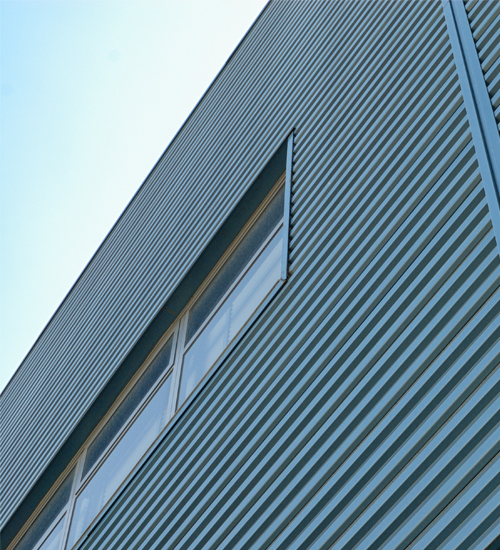Siding Installation
Trusted Local Siding Professionals
Your property doesn’t only need a proper roof, it should also have a durable and appealing siding to help protect your home or business. As a professional roofing contractor, we’ll ensure that you’ll have the perfect siding material for your home or business.
We specialize in siding installation, repair, and maintenance. For decades, we have helped customers make an informed decision in choosing the best siding solution for their home or business. We’ll guide you in choosing high-quality siding material for your property.

Don’t attempt to fix the damages by yourself. You might risk your safety and the safety of others. Similar to your residential roof and commercial roof, a professional roofing contractor has the right tools and equipment to effectively deal with different types of siding issues.
We’re highly-skilled and experienced in walking around your roof and inspecting the entire roof and siding for hidden and visible damages. As a professional roofer, we’ll provide the best roofing or siding solution based on the type of roof or siding that you have.
Professional Roofing Contractor
For an attractive finish to your siding, stucco siding has the best stylish finish. This concrete material is added to a mesh, a wire set, or wood lath, for a durable siding. It expands and contracts with its mixture of acrylic and polymer finish if exposed to extreme weather.
Such a feature of traditional stucco can benefit property owners with its high resistance to cracks and a longer-lasting lifespan of over 50 years. Traditional stucco siding is composed of Portland cement, limestone powder, sand, and water.
There are three coats that you can apply in this method and they’re applied in a mesh that looks like chicken wires. Also, you can repaint stucco with your favorite color to enhance the curb appeal of your property.
Traditional stucco siding material is highly recommended for its easy installation and flexibility. They’re also easy to repair and maintain. However, the downside of using traditional stucco is that they’re heavy and they’re prone to cracking and peeling.
Also known as the External Insulation and Finishing Systems or EIFS, synthetic stucco siding is the most preferred siding material used by both residential and commercial building owners. They’re tough and durable and they can withstand severe weather.
Synthetic stucco uses layers of synthetic materials such as polystyrene foam board, a fiberglass mesh, and a finishing coat as well. For increased protection, some siding professionals also choose to add water-resistant layers to it for better insulation.
One of the best siding materials in the market is vinyl. This has been popular with both residential and commercial building owners who are looking for durable and affordable siding material and are suitable for the climate in Savannah, Georgia.
Vinyl can withstand strong winds and harsh weather and it also adds great appeal to your home and business establishment. One of the best features of vinyl is that they require less maintenance. Vinyl is also resistant to insects, chipping, rotting, and peeling. This makes vinyl an excellent choice for siding material.
Wood is a cost-effective alternative to expensive siding materials. Wood is inexpensive and readily available, they’re easy to install, and repairs can be processed immediately. They’re eco-friendly and they’re fully recyclable.
On the other hand, engineered wood is more durable as compared to the traditional wood siding. They’re resistant to water and extreme weather. Wood siding comes in different shapes, forms, and styles. You can customize wood according to your preference.
Fiber cement board is an excellent siding material that is perfect for both residential and commercial buildings. This is a tough and durable siding material that can last for 50 years. Fiber cement board is fire-resistant, rot-resistant, and warp-resistant.
Fiber cement boards can also mimic the traditional style of wood to improve the aesthetic appeal of your residential or commercial property. When you install fiber cement boards, you don’t need to paint or seal them.
Assistance With Insurance Claims

